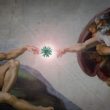The Transcendental Certitude of Metaphysical First Principles
by Dr. Dennis Bonnette
Filed under Belief, Philosophy

How do we really know that basic metaphysical principles, such as, that contradictions in being are impossible, are both certain and transcendentally true? That is, how do we have perfect certitude that they apply validly to every possible thing, including the God of classical theism? Some have argued that the principle of non-contradiction (PNC), which states that the same thing cannot both be and not be in the same respect, applies merely to macroscopic reality – to the humans and horses... Read More
What Life is Like When you Are not Alive
by Dr. Dennis Bonnette
Filed under Anthropology

Ever wonder what it is like to be in the next life, that is, to be dead? (I thought it best to leave the word “dead” out of the title of this essay.) Since this is something we all must face sooner or later, I thought it might be of interest to engage in some rational speculation about what a human being experiences, if anything, after he becomes unconscious for the last time. This is not a theological enquiry. So, depictions of hellfire and eternal bliss, though they may be apologetically... Read More
How the Blessed Mother Can Answer All Those Prayers
by Dr. Dennis Bonnette
Filed under Religion

Skeptics have long objected to Catholicism on grounds that it is obvious that the Blessed Virgin Mary, if real, could not possibly hear and answer all those hundreds of millions of prayers addressed to her personally every day by faithful Catholics and many other Christians. Given that we can barely concentrate on but a single question at a time, this objection seems, on its face, impossible to answer rationally. This element of Catholic belief seems simply absurd. Still, there exist several... Read More
Why Miracles are Credible to Catholics
by Dr. Dennis Bonnette
Filed under Uncategorized

Unlike many other articles dealing with miracles, this one is not actually expected to change minds about the reality of such phenomena. Rather, it is intended to show why miracles are believed and should be believed by believers as well as why miracles are not believed and likely will not be believed by unbelievers. The focus here is less on the extraordinary events themselves and more on the reasons why some people believe the reports about them, while others do not. The extraordinary phenomena... Read More
“Existential Inertia” vs. Almighty God
by Dr. Dennis Bonnette
Filed under Uncategorized

Materialist philosophers, starting in the fifth century B.C. with Leucippus and Democritus, have claimed that physical reality has simply existed without any temporal beginning, thereby avoiding need for any type of transcendent spiritual creator. With Christianity, though, came belief that the world began in time as well as the concurrent claim that a purely spiritual and utterly transcendent God was needed to explain its creation ex nihilo et utens nihilo. Since the Christian God was... Read More
Theism vs. Skepticism: The COVID-19 Pandemic
by Dr. Dennis Bonnette
Filed under Uncategorized

In an earlier Strange Notions essay, I addressed the problem of how an all-good God could be compatible with the existence of Hell. While that analysis befits the extreme case, the purpose of the present piece is to address the exact role of responsibility God has in terms of the very real and human tragedy posed by the Covid-19 virus which is presently raging throughout the world. This piece will not address the most ethical or medically correct methods with which to address this pandemic. Rather,... Read More
Why Reason Demands Absolute Certitudes
by Dr. Dennis Bonnette
Filed under Philosophy

The concept of certitude itself is not very popular today. Most skeptics, agnostics, and atheists view natural science as providing the surest available rational knowledge, and yet, because of this very fact, view all knowledge, at best, to be a matter of very high degrees of probability – never of absolute certitude. The inherent epistemological limitation of natural science is its inductive method, since observation of particular events can never produce universal certitudes – as famously... Read More
Hell and God’s Goodness
by Dr. Dennis Bonnette
Filed under Hell

Although this article will address the content of certain theological doctrines, it is written from a purely philosophical perspective. This is the same method used consistently in my book, Origin of the Human Species, in which I examine how evolutionary theory comports with divine revelation and philosophy. What characterizes philosophical analysis of theological doctrine is that reason alone is the method employed. Thus, while the philosopher as such cannot say whether the Trinity is factual,... Read More
Why Humans Are More Than Mere Animals
by Dr. Dennis Bonnette
Filed under Man, Philosophy, Uncategorized

Ever since the time of Charles Darwin’s thunderous appearance on the human stage, evolutionary materialists have envisioned a world in which man appears without any rational need either for the God of classical theism or for a spiritual and immortal human soul. Human beings are finally to be classed as merely highly-developed subhuman hominins, whose mental abilities do not differ in kind from those of other primates. Human intellectual activity is thought to be merely a highly-evolved form... Read More
Materialism’s Failures: Hylemorphism’s Vindication
by Dr. Dennis Bonnette
Filed under Uncategorized

Scientific materialists propose certain epistemological and ontological claims, allegedly in the name of natural science, that conflict with man’s common sense experience of the world. This article will show (1) that such claims are not based on sound natural science, but the assumed philosophy of materialism, (2) that the materialist/atomist worldview is fundamentally flawed, and (3) that hylemorphism offers scientifically-compatible alternatives that align with reality. Materialism's... Read More







